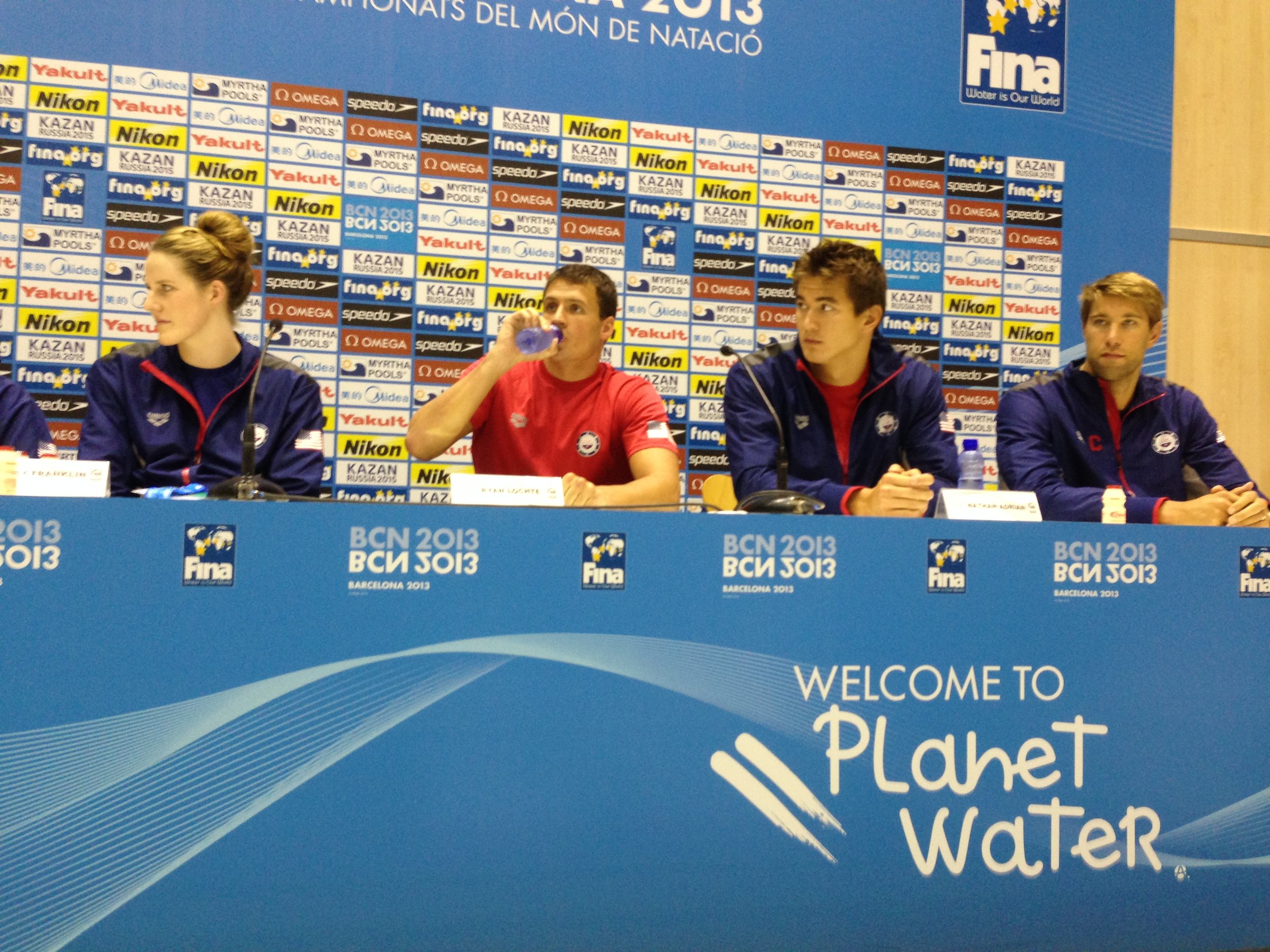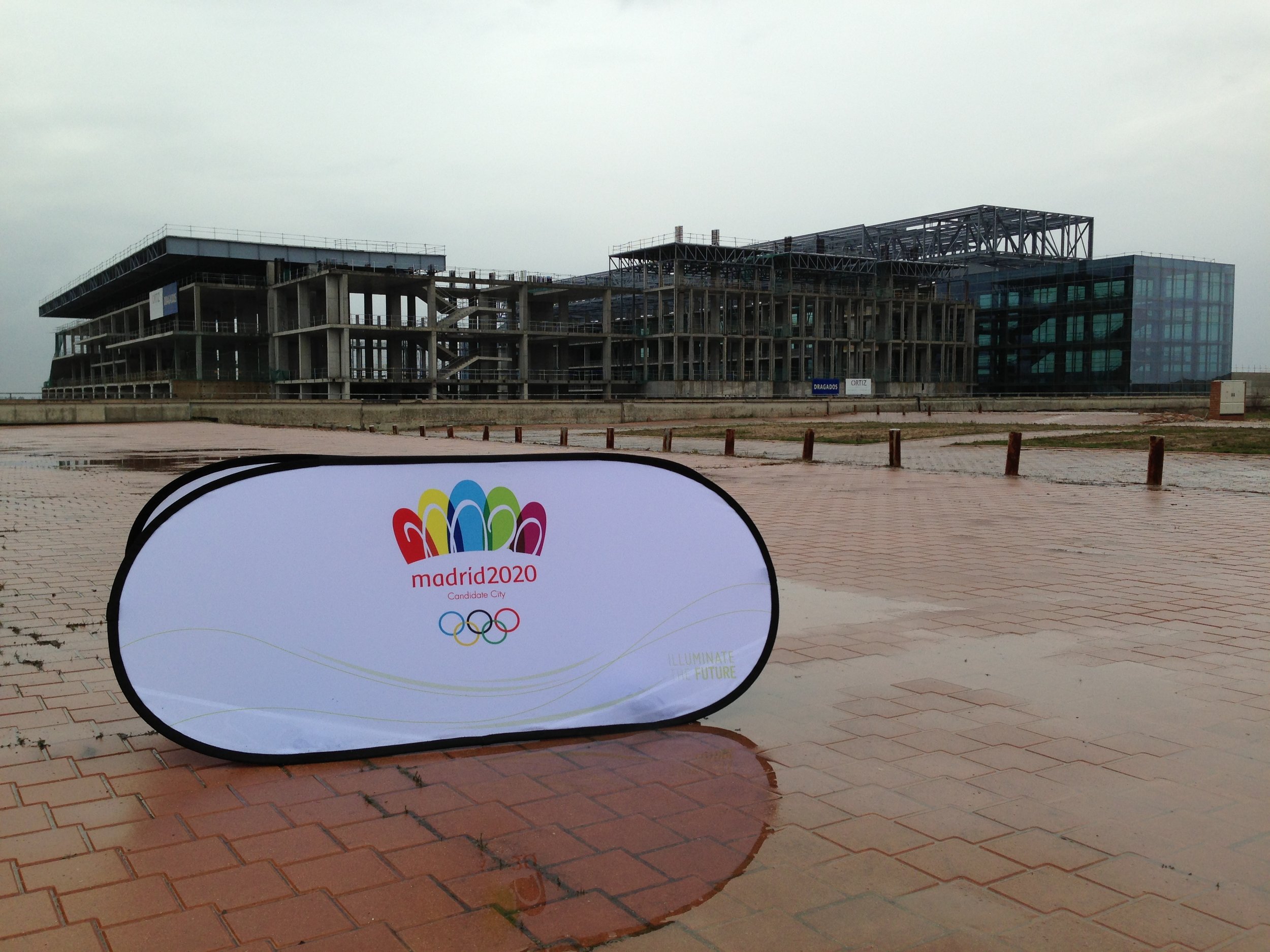The agenda is patently obvious Wednesday, when the International Olympic Committee's policy-making executive board meets in St. Petersburg, Russia, to determine the next steps for the sports program at the 2020 Summer Games.
Does wrestling stand a chance to get back in? Or will it be irretrievably out for at least for four years? What about baseball and softball's combined bid -- does it deserve the one spot now open for 2020? Or will the other sports, such as squash, karate or climbing, be given an opportunity to make their case?
No matter the decision, the bigger picture has already been revealed. The IOC's process for figuring out what sports should be in the Games is fundamentally flawed and needs wholesale review.
The fix the IOC is in can be crystalized by assessing the outcome of the wrestling dilemma -- a crisis of the IOC's own making.
If wrestling, which the board voted out in February, gets a chance Wednesday to come back, and then -- in September at the all-members session in Buenos Aires -- actually gets voted back on, that's testament to an an appropriately aggressive response from FILA, the international wrestling federation, and power politics from, among others, Russia, where wrestling really matters, and President Vladimir Putin.
Russia is playing host to the Sochi 2014 Winter Games in just a few months. At Putin's direction, some $51 billion has already been spent -- that we know of -- getting ready for Sochi.
Putin is due in St. Petersburg to meet Thursday with Rogge, the day after the executive board vote.
If it's ultimately wrestling again on the program, and you can for sure make that argument in good faith, here's the problematic next question: what changes will the IOC's post-London Games review toward 2020 have actually effected?
Zero. Zip. Nada.
This raises a completely different set of issues and questions. Because, one might argue, it is counter-productive indeed for the IOC to do nothing, to seem stale, when it proclaims time and again that its mission is to reach out to the young people of the world.
To be blunt: the IOC's No. 1 priority in an ever-changing world is to remain relevant. There's a reason why sports such as jeu de paume, pelota basque and croquet, once features of the Summer Games program, aren't on it any longer. The program evolves with time and circumstance.
Yes, and understandably, wrestlers want to shine at the Games. But so do shortstops on baseball teams. And girls around the world who play softball.
And, for that matter, so do surfers, skateboarders, dancers, mixed martial artists and others.
The IOC has spent more than 10 years, essentially since the Mexico City session in 2002, trying to figure what to do about the Summer Games line-up. With this result: baseball and softball out, golf and rugby sevens in.
That is not considerable progress.
It is abundantly plain that more progress on this issue is not going to, or can not, take place until after the election of the new IOC president, at the Buenos Aires session, in September.
After that, though, this issue ought to be a key priority.
Mindful that the IOC -- at least for now -- caps participation in the Summer Games at 10,500 athletes and 28 sports, and also appreciating that a logjam like this is going to take both time, some direct conversation and some out-of-the-box thinking, here is a proposal to start the dialogue.
To begin, because of the 10,500 cap, somebody's got to go.
Say good-bye to soccer (504 athletes in London), shooting (390) and equestrian (200). This assumes wrestling is gone as well (344). Now you have cleared 1438 spaces.
Soccer for sure does not need the Games. Obviously, the men's component at the Olympics is not even the beautiful game's top priority since the best players don't play.
As for shooting -- people are going to shoot guns no matter what.
And for equestrian -- horse shows will survive without the Olympics, it's always a complication getting the horses to the Games and while the proponents of equestrian sport like to talk about how it fosters an amazing connection between man and beast that anyone can enjoy, doesn't it really cost a lot of money -- an awful lot of money -- to compete at an elite level?
Another way to approach the 10,500 cap is to ask why there is a 10,500 cap. And why the Games only run for 17 days. But that's a different philosophical issue entirely.
At any rate, once you make room for new sports, here are sports to consider, sports that young people actually like and that would not only make for hot tickets live but would crank up TV ratings, too:
Surfing
Is there anyone who doesn't think surfing is cool? Who in the world doesn't think Hawaiian surf god Laird Hamilton is, like, the coolest guy on Planet Earth? Wouldn't he be an invaluable asset to the movement? Dude, there is an entire culture devoted to this sport.
The head of the International Surfing Assn. recognizes that the only way surfing makes its way into the Games is not out in the ocean. It's through man-made wave-park technology.
Purists would assuredly argue that would be betraying some of surfing's soulfulness. Who, though, says the soul of surfing requires it to be a sport for only those who live by the shore? That technology would spread the sport far and wide, allowing millions -- if not billions -- more access to it.
If you think beach volleyball is now the hot ticket at the Games -- imagine the scene at Olympic surfing.
Fernando Aguerre, 55, a surfer (of course) and president of the ISA, is a visionary, not just an entrepreneur and environmental activist but someone who for years now has understood the power of the Olympic movement to effect change.
Born and raised in Argentina -- where he founded the original Argentinean Surfing Assn. despite a military dictatorship ban on the sport at the time -- he now lives near San Diego, Calif.
Reef, the sandal and sportswear maker? That was his company. This summer, the surf industry's trade group SIMA -- which is more likely to honor the likes of a competitor like Kelly Slater -- is poised to give Aguerre its top prize, the Waterman of the Year Award.
The federation, incidentally, now counts 72 member federations. It includes world championships in a variety of categories. Further, ISA has launched a number of initiatives, including scholarship programs for young surfers in countries like Peru.
Aguerre said, looking at the sports in the Games program, "I believe restrictions on participation should exist. However, I think that in the best interest of the Olympic movement, the results should be applied to all sports -- those that are in the Games and those that are not in the Games. It should be a level playing field."
He added a moment later, "It's like I say about creating a menu for a party. It doesn't matter what food you serve in your house. You look at the best food, and then you create the menu. Then people are going to be happy."
Skateboarding
The IOC has done solid work in bringing snowboarding to the Winter Games. U.S. icon Shaun White is now a two-time Winter Games gold medalist.
White is also a skateboarding stud.
And yet he can't compete in skateboarding at the Summer Games?
This makes no sense, especially when you see skateboarders doing awesome tricks at the X Games.
The explanation is both simple and yet super-complex -- it's sports politics.
Without getting too deep, the IOC demands national federations and an international federation. And everyone understands that skateboarding could mean big money.
The snowboarding analogy: snowboarders got in through the skiing federation. Now it's all good. But at the time, in the late 1990s, it was far from easy.
The challenge for skateboarding is figuring out how to get in -- separately, or under the wing of another federation. The cycling federation, for instance, has often been mentioned. But that has never seemed like the right fit.
So, as IOC president Jacques Rogge said in a recent interview in Around the Rings, this is the impasse.
It needs to be worked out.
Again, see those skateboarders at the X Games?
DanceSport
When: Dec. 11, 2000.
Where: the Palace Hotel, Lausanne, Switzerland.
What: a standard and Latin DanceSport demonstration.
Who was there: then-IOC president Juan Antonio Samaranch, the entire IOC executive board, the IOC program commission and others, among them me. I walked out thinking, no way.
More than a dozen years later, and all I can say is, I was flat-out wrong, and I am here now to say it's time to admit it.
One: it's ridiculous to say the IOC doesn't allow dancing in the Games. Look at ice dancing in the Winter Olympics.
Two: they're real athletes. Ask Apolo Ohno, the eight-time U.S. short-track speed skating medalist, about how physically taxing it is to dance on "Dancing with the Stars." Or Shawn Johnson, the U.S. gymnast who won gold on the balance beam in Beijing in 2008 and who, like Ohno, is a "Stars" winner.
Three: have you seen the ratings for "Dancing with the Stars"? Or the British version, "Strictly Come Dancing," which started the entire thing? Ladies and gentlemen, what we have here is not just a franchise but a worldwide phenomenon. And not just on TV. We're talking crazy on social media.
Tug of war
Is there a kid alive who has not played tug of war?
This is a sport that, with a little rock-and-roll music, some cheerleaders and a little sand, could become the next breakout hit -- again, the next beach volleyball.
What do you need to make tug of war happen? A rope. Where is there not a rope and some imagination?
A little-known fact is that tug of war was included in the Games from 1900 to 1912, and again in 1920. Time to bring it back!
As David Wallechinsky writes in his authoritative The Complete Book of the Olympics, a first-round pull resulted in one of the biggest controversies of the 1908 London Games: after the Liverpool Police pulled the U.S. team over the line in seconds, the Americans protesting that the Liverpudlians had used illegal boots spiked with steel cleats. The British maintained they were wearing standard police boots; the protest was disallowed and the Americans withdrew. After the tournament, the captain of the gold medal-winning London City Police challenged the Americans to a pull in their stockinged feet; there is no record of such a contest ever taking place, Wallechinsky writes.
Meanwhile, talk about universality. Imagine three-on-three teams from, say, American Samoa and Estonia. Why not?
Why not mixed teams? Men and women competing against each other? Maybe five-on-five?
All that would require some major rules changes, acknowledged Cathal McKeever, head of the sport's international federation, who said it is actively working to get back onto the program, perhaps by 2024.
"It's not like Michael Phelps," he said. "We don't have superstar individuals."
Not yet.
Mixed martial arts
Eight years ago, when I was still a staff writer for the Los Angeles Times, I wrote a front-page story about an up-and-coming sport, mixed martial arts, that U.S. Sen. John McCain, the Republican stalwart from Arizona, had once decried as "human cockfighting."
Since then, the UFC has gone on to become an enormous success story.
Mixed martial arts is already huge, it's still growing, young people can't get enough of it, and the time has come for the IOC to start coming to terms with it -- indeed, to get on board, because if you go to an MMA gym, the values that are preached there are thoroughly in line with the Olympic values: respect, excellence, friendship.
One of the primary ethos of an MMA fight is that it's OK to tap-out to live to fight again -- this shows respect not just for your opponent but for the sport itself.
Every excuse the IOC could come up with is just that -- an excuse.
For instance, there are those who don't like the fact that MMA is a "submission sport." But so is judo.
To be clear, this is a long-term proposition. The IOC and the international federation -- yes, there already is one, and it is not based in the United States -- would have to figure out how the basics of how to run a tournament. Could the athletes, for instance, reasonably be expected to fight three or four times over 16 days?
Here's the thing, though: where there's a will, there's a way. And when the IOC wants to get things done, it always does.
Oh, and to take this back to the beginning of this column, and wrestling, because wrestling has been around since the beginning of the modern Olympics in 1896 -- you know what was a major feature of the ancient Games, in Olympia itself? A discipline called pankration.
Today we would call that "mixed martial arts."















